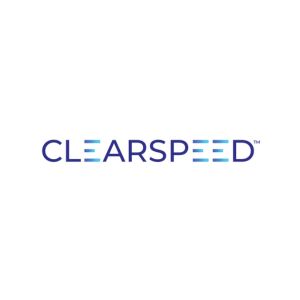
By futureTEKnow | Editorial Team
The AI ecosystem is experiencing a significant evolution as Cognition AI acquires Windsurf—a move arriving on the heels of an eventful Google licensing deal that set the stage for this merger. Both companies, now united, are poised to redefine the software development landscape with a blend of high-performance tooling and intelligent agents.
“Windsurf is one of the leading ideas. Cognition builds Devin, the first AI software engineer agent. There’s a clear offering of IDE and agent.”
— Scott Wu, Cognition CEO
The announcement came after a tense period for Windsurf. With the Google licensing arrangements wrapping up, leadership at Windsurf worked rapidly to secure the most promising path for their team. Windsurf CEO Jeff Wang described the decision as a clear fit, emphasizing a shared enterprise vision and compatible customer base. For Wang, keeping the full integrity of Windsurf’s engineering, market, and product teams was essential—a requirement that Cognition could meet
Both companies report that the merger was orchestrated swiftly, with all Windsurf employees offered immediate benefits and a place within the Cognition team. The deal itself was structured as a clean break from Google, ensuring the product, the IP, and core teams remained intact and empowered for the next stage.
Windsurf’s developer tools and Cognition’s AI agent Devin are designed to complement each other. Together, they envision an environment where developers can seamlessly move between autonomous AI-driven project scaffolding and hands-on code refinement. The workflow might soon allow engineers to:
Delegate routine or structural code tasks to Devin (AI agent).
Use Windsurf’s IDE for rapid iteration, debugging, and finishing touches.
Leverage end-to-end support for massive enterprise software deployments.
This combination isn’t theoretical—major institutions like Goldman Sachs, Citibank, and JP Morgan are already engaging with these platforms, highlighting early enterprise traction.
Perhaps most notably, Windsurf’s transition was engineered as an employee-first acquisition. All investor and founder shares were cleared during the Google process, resulting in Windsurf being fully employee-owned at the time of the Cognition deal. This approach could signal a shift in how AI and tech startups weather corporate transitions, offering an alternative to traditional acqui-hires or distressed sales.
“All investors and founder shares were wiped off the cap table. It was an entirely employee-owned company. A lot of people were very, very happy yesterday.”
— Jeff Wang, Windsurf CEO
Cognition AI’s acquisition of Windsurf is about merging exceptional developer tools and AI agents, targeting productivity and scale for large enterprises.
The deal represents a ‘clean cut’ from Google—Windsurf’s full stack, IP, and teams are preserved and now integrated into Cognition.
A novel employee-first transition model saw Windsurf’s staff leading the charge in value distribution.
The unified platform is already gaining traction at some of the world’s largest financial institutions.
This move hints at a new industry template for how AI companies might join forces while securing the best outcomes for both employees and enterprise users.
The coming months will reveal how this consolidation shapes the next leap in developer productivity and AI-powered software creation.

Bridgit Mendler’s Northwood Space is pioneering mass-produced ground stations, enabling scalable, high-speed connectivity for the new era of satellite networks and megaconstellations.

SpaceX aims to nearly double launches from Vandenberg in 2025, facing support from federal agencies but strong objections from the state and local communities.

Traditional Medicare will pilot AI-assisted prior authorization in 2026 across six states, focusing on high-risk outpatient services. Clinicians retain final say, but incentives and access concerns loom as CMS tests fraud reduction and “gold card” exemptions. Here’s what providers and patients should know.

OpenArt’s new “one-click story” compresses scripting, visuals, and edits into ready-to-post short videos—fueling viral growth and a fresh IP debate. We break down how it works, adoption signals, what’s next (multi-character, mobile), and practical guardrails creators and brands should follow to stay original and compliant.

OpenAI’s o3 swept the Kaggle AI chess tournament, defeating xAI’s Grok 4–0. The victory fueled the intense rivalry between Altman and Musk, reshaping AI benchmarks.

NASA and Google’s AI-powered Crew Medical Officer Digital Assistant enables autonomous diagnoses for astronauts on Mars missions, redefining remote healthcare for space and Earth.

Pinterest’s CEO confirms that fully agentic AI shopping is years away, as the platform invests in AI-powered tools to enhance discovery, inspiration, and personalized shopping experiences for millions.

Shopify’s new AI shopping tools are transforming e-commerce, letting agents and chatbots deliver smooth, personalized shopping and checkout experiences across platforms. Learn how these innovations reshape online retail.

Meta has acquired WaveForms AI, a startup pioneering emotion-detecting voice technology. Learn what this means for Meta’s AI voice ambitions and the future of AI audio.

Tracelight is revolutionizing financial modelling for finance professionals with AI-powered Excel tools that automate complex tasks, reduce errors, and unlock new analysis capabilities. Learn how this next-gen solution changes the future of spreadsheets.

China’s Lanyue lander completed its first major test, showcasing advanced engineering for safe, crewed moon landings before 2030. Explore how this milestone shapes the space race.

Microsoft rolls out GPT-5 across its Copilot suite, integrating smarter AI for enterprise and personal users. Discover new features, free access, and what sets this launch apart.
To provide the best experiences, we use technologies like cookies to store and/or access device information. Consenting to these technologies will allow us to process data such as browsing behavior or unique IDs on this site. Thanks for visiting futureTEKnow.